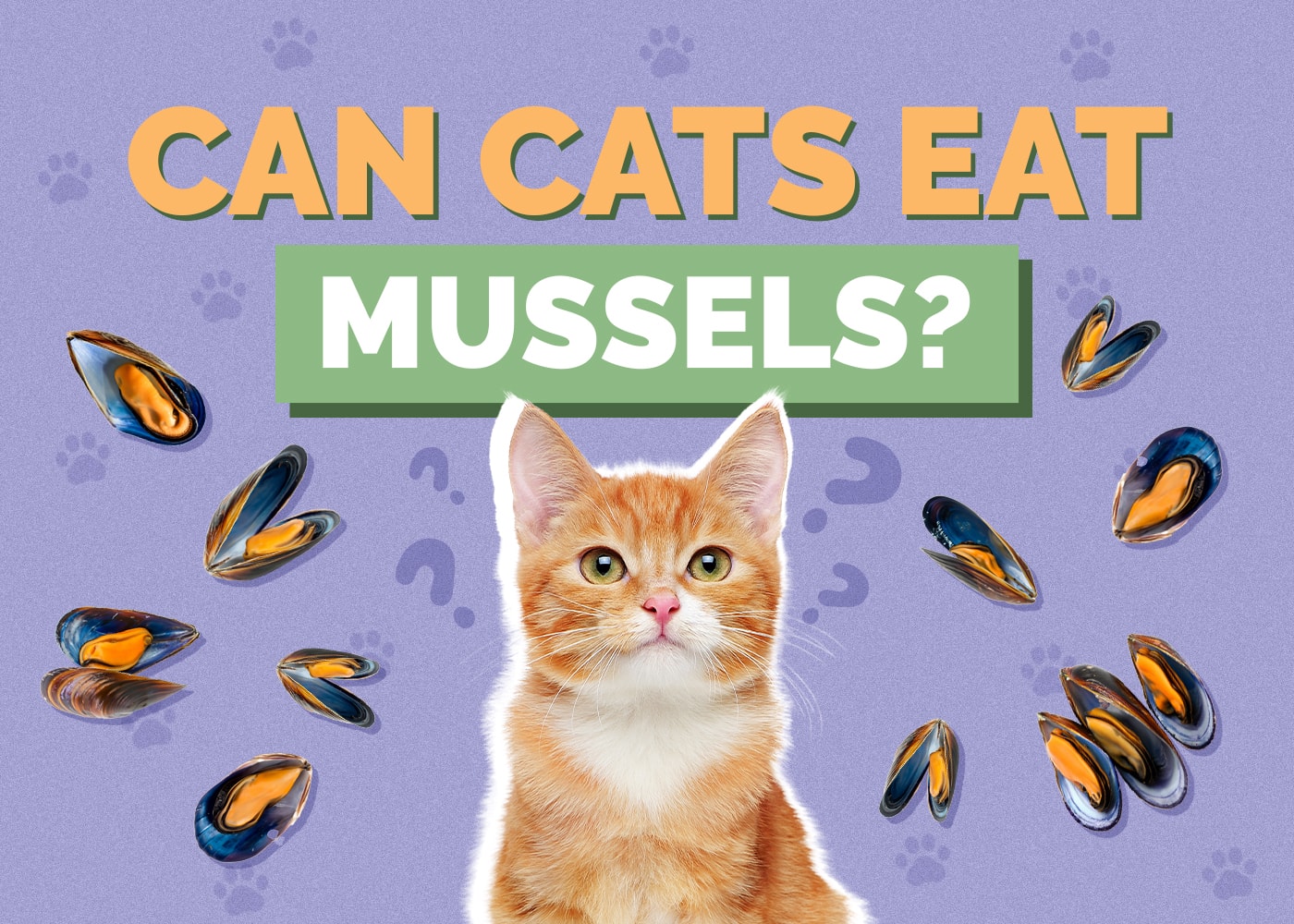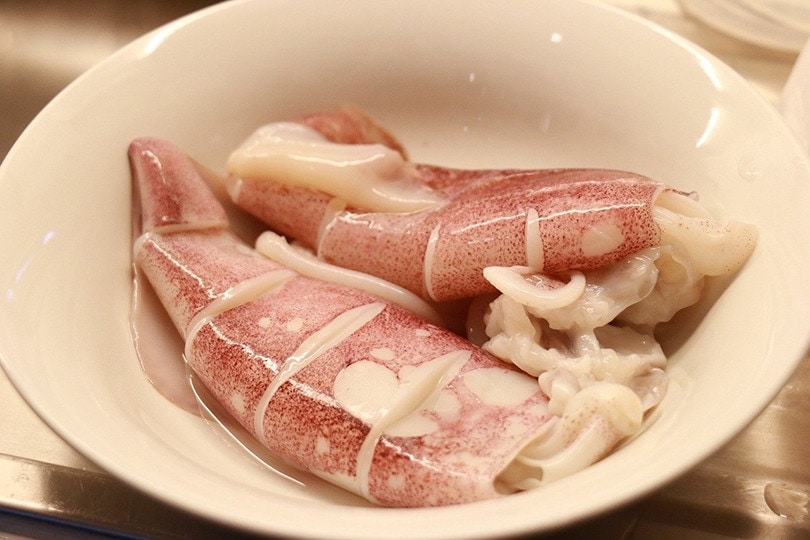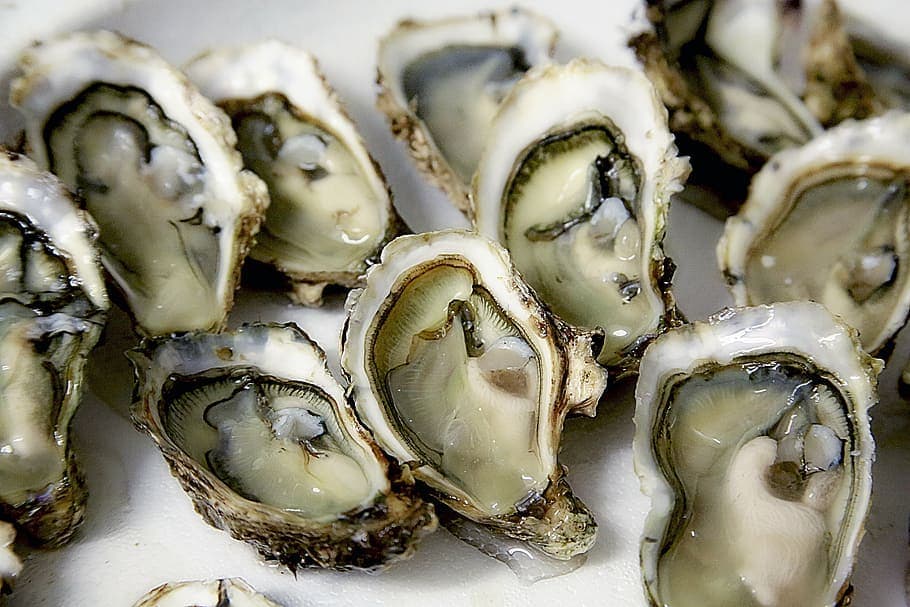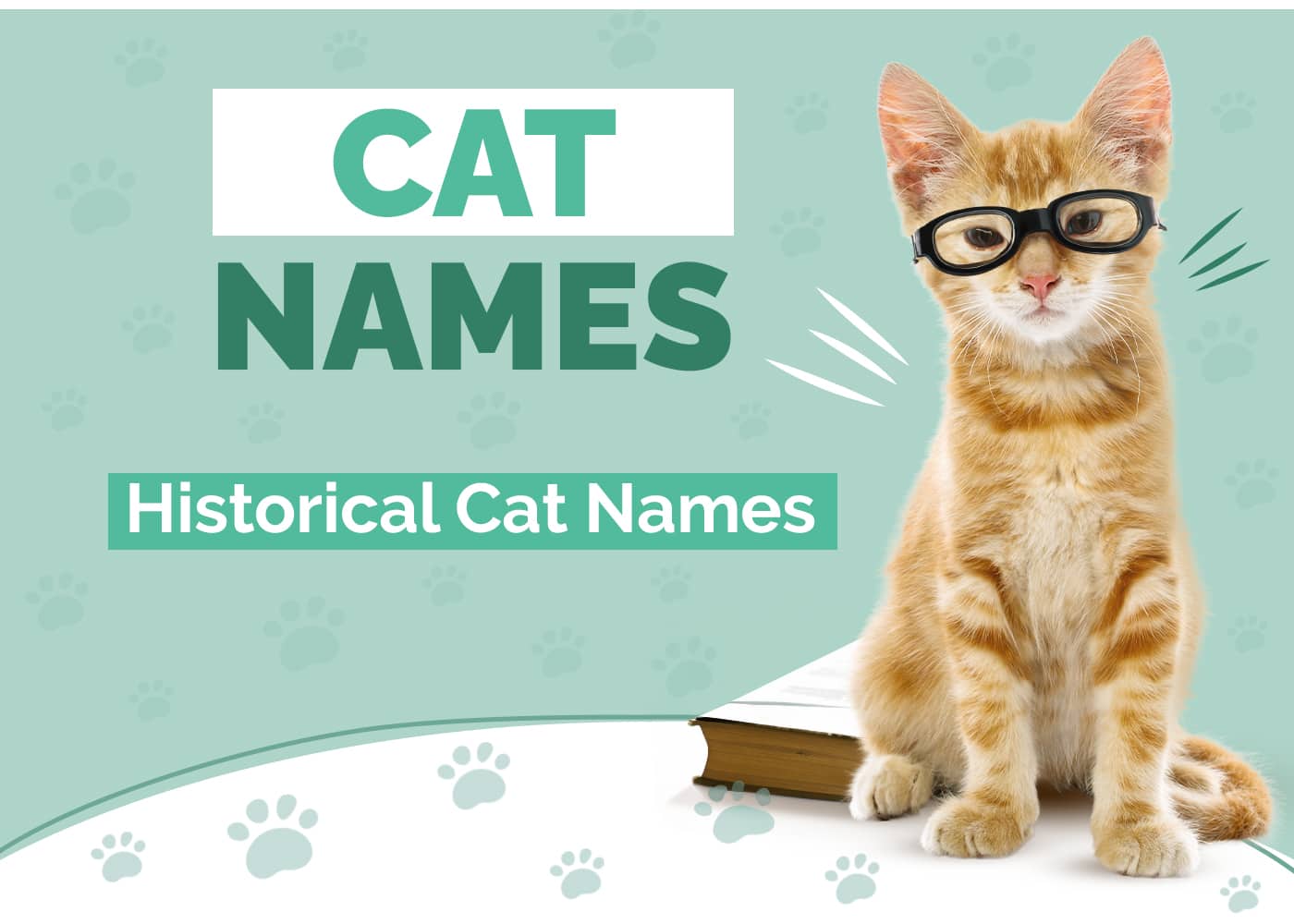Can Cats Eat Mussels? Vet-Reviewed Nutritional Facts & Safety Tips

Updated on

Can cats eat mussels? The answer to this question is yes, when cooked and only offered in moderation, but of course, that’s not all you should feed your feline pal. Mussels are full of minerals and vitamins your cat needs to be healthy, strong, and live a good long life. The mussels also contain essential amino acids, but it’s important to only feed your cat plain cooked mussels.
In this blog, we’ll talk a bit about why mussels are good for cats, what the health benefits are, and a few of the other foods you might want to feed your furry friend as well.
What Are Mussels?
Mussels are fresh or saltwater bivalves that people have been eating for a very long time. Since they’re sort of seafood and meat, they’re a good source of protein for your cat. So, the next time you’re fixing a batch of mussels for your dinner, cook some unseasoned ones for your pet.

Are Mussels Healthy for Cats?
Mussels can be a healthy treat for your cat to feed them occasionally and not as the only food you feed them. Though they are a great source of protein, vitamins, and minerals, they don’t contain all the nutrients your cat needs to thrive. It is essential to note that you should never feed your cat raw mussels. They contain bacteria and could have dangerous pathogens that could make your cat sick or worse.
If your cat has gotten into raw mussels and eaten them, it’s best to contact your vet for an emergency visit. Keep the mussels you cook for your pet free of sauces and other seasonings. Though they might love the taste, they can be toxic for your cat.
Health Benefits of Feeding Mussels to Your Cat
As previously stated, there are a few health benefits to feeding mussels.
- Protein: Mussels contain mainly protein, and since cats are obligate carnivores, they need protein to survive. Mussels are close to 24% protein, which is excellent for your cat.
- Vitamins and Minerals: Mussels also provide your pet with essential vitamins and minerals. For example, one 6-ounce portion of mussels provides your cat with more calcium and iron than the same 6-ounce portion in steak or chicken.
- A Low-Calorie Choice: Some cats become overweight as they age, especially if they’re indoor cats who never go outside and get very little exercise. Mussels can be a good low-calorie choice of treats for a cat who is overweight. One ounce of cooked mussels contains approximately 49 kilocalories. Most mussels average around 12 calories per treat, so they are an excellent option for cats.
What Types of Seafood Can Cats Eat?
Now that you know cats can eat mussels, you might wonder what other types of seafood cats can eat. We’ll talk a little about the different kinds in our next section.
Lobsters

Cats can eat lobsters, but only in moderation, and never with seasoning or with the lobster dripping butter. Also, ensure the lobster is cooked because raw lobsters can contain pathogens that make your pet sick.
Squid

Yes, your furry friend can eat squid, but again, only in moderation as an occasional treat. Only serve plain, cooked squid with no seasonings. You don’t want to upset your cat’s stomach with greasy food or poison them with dangerous seasonings. Squid also shouldn’t be served raw, and since it gets rubbery during cooking, you can cut it into bite-sized pieces to prevent it from becoming a choking hazard.
Oysters

While cats can eat oysters on occasion, there are much better options if your cat loves fish. Never feed a raw oyster to your cat, and provide them to your feline unseasoned, as with other seafood. Avoid oysters that have additives in them as well.
Scallops

As with the seafood above, cats can eat scallops if they are cooked plain and not fed to them raw.
Possible Risks of Seafood
Some cats have seafood allergies, just as some humans do. If your cat seems to have developed an allergy to any seafood you’ve given them, get them to an emergency vet for treatment right away.
Raw seafood can contain bacteria, viruses, and other pathogens you want to watch out for, so always cook the food well.
Now that you know what you can safely feed your cat, it’s just as important to find a bowl that supports their health and well-being. With whisker-friendly bowls and a wide tray to catch any spills, our Hepper NomNom Cat Bowl is our favorite option.
Final Thoughts
This answers our question of whether cats can eat mussels with a yes if cooked and in moderation. It’s okay to feed them mussels and other forms of seafood as long as you do so occasionally and don’t make it a part of their everyday diet. Make sure that you watch for allergies, and always cook the seafood to the correct temperature before feeding it to your feline. Your cat will love seafood treats and show you gratitude with lots of love and affection.
Featured Image Credit: Mr.Samarn Plubkilang, Shutterstock














